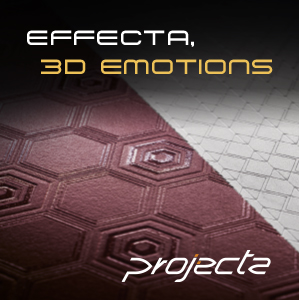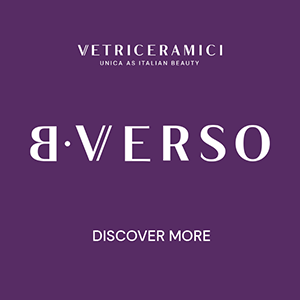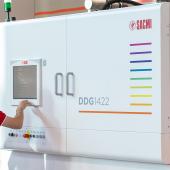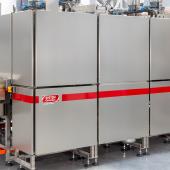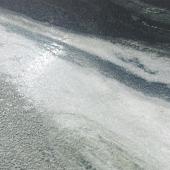Keratech: The new roller KM301 AR
In ceramic production, each kiln has a specific zone where the rollers have a shorter lifetime due to problems of soiling or chemical attack.
In the past this was normally the zone between approximately 850°C and 1050°C, but there are now increasing occurrences of chemical attack at the beginning of the firing process, i.e. between 1000°C and the maximum firing temperature. This is due to multiple factors: the need to fire different materials in the same kiln (porcelain, monoporosa, etc.), which results in the use of different cycles; the choice of engobe; and above all the quantity of impurities introduced into the kiln in the form of soluble salts contained in raw materials, washing water, recycled sludge, etc.
In recent years Keratech has invested in research and development of solutions capable of offering greater resistance to alkaline attack and solving problems of soiling, thereby increasing the lifetime of rollers and enabling them to be cleaned and reused.
The use of innovative raw materials allows for more effective protection of the matrix, the most vulnerable part of the roller consisting mainly of newly formed mullite, and has led to the development of a new product called KM301AR (Alkali Resistant).
Prior to validation, the product underwent a long period of testing in ceramic factories in the Sassuolo area with extremely interesting results.
Ceramic tile producers experiencing significant problems of chemical attack and soiling in the initial firing zone were chosen for on-site testing. The KM301AR (Alkali Resistant) rollers were installed in a zone with a temperature range between 1150°C and 1235°C.
After 12 months of continuous use, tests were conducted to compare the behaviour of this new roller with other technical rollers (mounted in the same position and used for the same length of time).
It was observed that KM301AR (Alkali Resistant) displayed less pronounced soiling than the other types of roller (photo 1).
SEM analyses conducted over the roller cross-section showed that the new composition creates a barrier effect on the surface, significantly limiting the advance of alkaline agents, especially calcium which is chiefly responsible for chemical attack on the mullite phase.
Due to the reduced severity of the attack, the rollers can be extracted from the kiln without problems of breakage. Subsequent analyses have shown that the mechanical properties (elastic modulus and modulus of rupture) of extracted and cleaned rollers are unchanged with respect to typical values.
KM301AR (Alkali Resistant) is a highly versatile roller suitable for a wide range of operating conditions and for the production of all kinds of products. With an elastic modulus of more than 93 GPa and a modulus of rupture higher than 60 N/mm2, it achieves high performance even in the presence of medium to high loads. In the firing zone, it can withstand stresses of δ=90 kg/cm2 without bending, equivalent to the transport of material weighing around 30-35 kg/m2. Thanks to its mineralogical composition and a vitreous phase percentage of less than 2%, the roller can even be used in the highest temperature zone of the kiln without experiencing problems of bending associated with viscous creep. This means that it can offer the maximum support to the transported tiles at the moment of maximum pyroplasticity. The high chemical resistance and good dilatometric values confirm the roller's high thermal shock resistance.
| Photo 1 |
|
MAPPING OF CALCIUM CONCENTRATION (cross-section of roller) |
|
|
KM301AR |
Technical roller |
 |
 |
|
KM301AR |
Technical roller |
|||||
|
%CaO |
%Na2O |
%K2O |
Depth (mm) |
%CaO |
%Na2O |
%K2O |
|
3.98 |
0.88 |
0.37 |
0-0.3 |
19.99 |
0.11 |
0.12 |
|
0.34 |
1.03 |
1.01 |
0.3-0.6 |
0.84 |
0.86 |
0.83 |
|
0.33 |
0.97 |
0.63 |
0.6-0.9 |
0.57 |
1.11 |
0.87 |
Did you find this article useful?
Join the CWW community to receive the most important news from the global ceramic industry every two weeks








